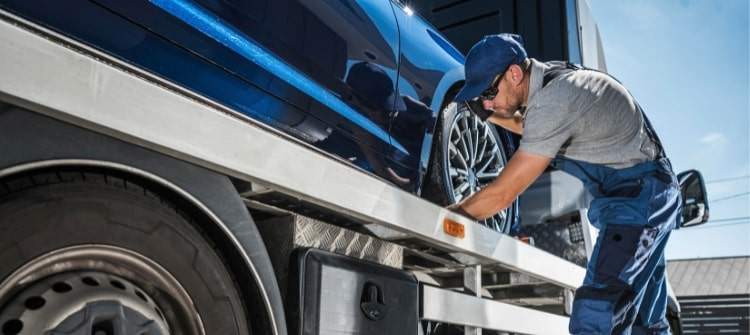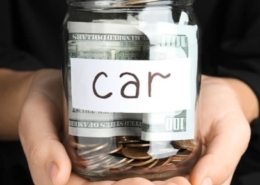The Ultimate Guide to Buying a Car Out of State
Unlock the secrets to effortlessly buying your dream car from another state with our expert step-by-step guide.
How to Buy a Car From Another State
In the dynamic realm of car buying, venturing out of state to purchase a vehicle opens up a world of possibilities and challenges. This approach can lead to significant benefits, such as accessing better deals, finding unique or specific models unavailable locally, or acquiring a coveted vintage car.
However, the journey is fraught with complexities, from navigating varying state laws on sales tax and registration to handling logistical matters like vehicle inspection and transportation.
Key Takeaways
- Access More Cars & Save: Out-of-state purchases unlock a more comprehensive vehicle selection and potential savings.
- Plan Ahead: Essential steps include inspections, understanding legalities, and transport arrangements.
- Worth the Effort: The proper preparation turns challenges into a rewarding path to your ideal car at a great price.
Our guide simplifies this intricate process, offering a concise roadmap that covers essential aspects such as verifying the car’s history, understanding interstate legal requirements, and exploring financing and insurance options.
We also provide practical advice on driving your new purchase home or opting for professional shipping, ensuring you’re well-prepared for every step of the out-of-state car-buying journey.
Car Buying Tip: If you’re shopping for a new car, you may have noticed that finding a fair price can be difficult in today’s market. Many consumers end up paying more than the suggested retail price. But don’t worry! You can still get a great deal on a new vehicle by requesting free car price quotes to compare dealer prices in your area.
Table of Contents
- Why Consider Buying a Car Out of State?
- Step-by-Step Process for Buying a Car Out of State
- Understanding Sales Tax, Registration, and Title Transfer
- Inspection and Emission Requirements
- Shipping Your New Car Home
- The Benefits of a Pre-Purchase Inspection
- Financing and Insurance Considerations
- Common Pitfalls and How to Avoid Them
- Frequently asked questions
- Final thoughts
Why Consider Buying a Car Out of State?
Exploring the possibility of buying a car out of state is an enticing venture for many, driven by several compelling reasons that make the journey worth considering. This approach to car buying opens the door to a treasure trove of opportunities that might not be readily available within your immediate geographical area.
Here’s a closer look at why venturing beyond state lines could be beneficial:
Wider Selection
One of the most significant advantages of buying a car out of state is the dramatic expansion of your vehicle selection.
- Different states offer various vehicles due to variations in consumer preferences, climate conditions, and inventory levels.
- You’re likely to find a broader selection of specific car types, like electric vehicles in areas with more EV infrastructure or a variety of SUVs and trucks where they’re more popular.
- Expanding your search area allows you to find a vehicle that perfectly matches your needs and desires, allowing you to choose from a wider pool.
Cost Savings
Economic variances across states can lead to noticeable differences in vehicle pricing.
- Local vehicle demand, taxes, and dealership incentives can significantly influence price differences across states.
- Searching out of state may reveal the exact vehicle at a lower price, offering the opportunity for considerable savings.
- This cost-efficiency can potentially upgrade your purchase to a higher trim or a model with additional features within the same budget.
Rare Finds
The out-of-state market can be a goldmine of rare finds for enthusiasts seeking specific models, editions, or classic cars.
- The out-of-state market is ripe with opportunities for discovering specific models, limited editions, or classic cars that are rare or nonexistent in your local market.
- For those seeking a unique vehicle, whether a limited-production sports car or a cherished vintage model, casting a wider net significantly increases the likelihood of success.
- This fulfills the desire for exclusivity and adds an element of excitement to the car-buying journey.
Step-by-Step Process for Buying a Car Out of State
Buying a car from out of state involves a series of deliberate steps to ensure a smooth and legally compliant transaction.
Here’s a breakdown of the critical stages, formatted for clarity:
1. Research
Begin your quest by zeroing in on the type of vehicle you desire. This involves exploring various makes and models to determine what best suits your needs, preferences, and budget. Use free online resources such as RydeShopper and Edumds, consumer reviews, and comparison tools to aid decision-making.
2. Verification
Once you’ve identified a potential vehicle, verifying its history and condition is vital. Services like AutoCheck – Vehicle History Reports provide comprehensive reports detailing previous ownership, accident history, service records, and any existing liens. This step is crucial for avoiding costly mistakes and ensuring the vehicle’s integrity.
3. State Laws and Requirements
Different states have varying regulations regarding sales tax, title, and registration. Investigate these aspects thoroughly to understand your obligations in the seller’s state and your own. This includes knowing if you’ll need to pay sales tax at the point of purchase or upon registering the vehicle in your home state and understanding the necessary steps for title transfer.
4. Payment
Financing a vehicle from another state can be complex. Contact your bank or credit union to discuss loan options for out-of-state purchases. Some lenders may have restrictions or require additional documentation. Alternatively, if paying in cash or arranging payment through the seller, ensure all agreements are documented and secure.
5. Inspection
A pre-purchase inspection by a trusted mechanic is indispensable. This step provides an unbiased assessment of the car’s mechanical condition, potentially uncovering issues not evident in the vehicle history report. Arrange for an inspection at a reputable local shop near the seller, and consider the findings carefully before proceeding.
6. Paperwork
Proper documentation is the backbone of a successful out-of-state car purchase. All essential documents include the bill of sale, title transfer, and temporary registration. Ensure the title is clear (not salvaged or under a lien) and that you have a bill of sale outlining the purchase agreement. Acquire a temporary registration or transit permit to drive the car back to your home state legally.
7. Transportation
Deciding on how to get your new car home is an important consideration. Driving it back yourself can be an adventure and cost-effective option, but it’s not always feasible. In such cases, hiring a reputable vehicle shipping company is the alternative. Obtain quotes from several carriers and choose one that offers the right balance of price, service, and insurance coverage.
8. Registration and Taxes
Upon successfully bringing the vehicle to your home state, the final step is registering it and paying applicable taxes and fees. Visit your local DMV with all the necessary documents, including proof of insurance, the bill of sale, and the vehicle’s title. Be prepared to pay the sales tax if not already settled in the purchasing state, along with any registration fees.
You can confidently navigate the out-of-state car buying process by methodically following these steps and paying close attention to detail. This approach ensures legal compliance and financial wisdom and paves the way for a satisfying purchase of your next vehicle.
- How to Buy a New Car Below Factory Invoice Price – True dealer cost and the factory invoice price are not the same… dealer cost can be much lower.
- Figure a Fair Profit New Car Offer – How to calculate a fair profit new car offer.
- How to Buy a New Car Online – Not sure where to start? Use my step-by-step guide on how to buy a new car online.
Understanding Sales Tax, Registration, and Title Transfer
Understanding the financial implications of buying a car out of state, specifically regarding sales tax, registration, and title transfer, is vital to ensuring a smooth transaction. Each element carries nuances that can significantly affect your purchase’s overall cost and legality.
Here’s a more detailed exploration of each:
Sales Tax
- Where You Pay: Generally, sales tax is paid in the state where you register the vehicle, which is usually your home state, not where the car is purchased. This can be advantageous if you live in a state with lower sales tax rates than where you’re buying the vehicle.
- Rate Variations: Sales tax rates vary significantly from state to state and sometimes even within different localities within a state. Researching the applicable sales tax rate for your locality can help you budget more accurately for the total cost of purchasing and bringing home an out-of-state vehicle.
- Tax Credits: Some states offer tax credits for sales taxes paid to another state. If you must pay sales tax at the point of purchase, check if your home state provides credits against the sales tax you’ll owe there, preventing double taxation.
Registration
- Initial Steps: Upon purchasing your vehicle, you must register it in your home state to drive it legally. This process involves paying any applicable registration fees and obtaining license plates.
- Documentation Required: To register your out-of-state purchased car, you’ll need to present several documents at your local DMV, including proof of ownership (such as the signed title from the seller), proof of insurance, and possibly a bill of sale. Each state has its requirements, so checking these in advance is crucial.
- Inspection Requirements: Some states require a vehicle inspection (safety, emissions, or both) before registering a car. If your vehicle is from a state with no or less stringent inspection requirements, ensure it meets your state’s standards before purchasing.
Title Transfer
- Ownership Proof: The vehicle title is a legal document proving ownership. Ensuring the title is transferred to you when buying a car out of state is critical. This process varies by state but generally involves the seller signing the title over to you, which you then submit to your state’s DMV.
- Clear Title: Ensure the title is “clear,” — meaning it’s free of liens. A lien could indicate the vehicle is not fully paid off, potentially complicating the transfer process.
- Application for Title: Once you have the signed title, you’ll need to apply for a new title in your name in your home state. This is typically done at the same time as registration. This step may require paying a title transfer fee, taxes, and registration fees.
Real-Time Bargain Hunting: Turn to Edmunds for instant access to the latest and greatest local deals, saving you time, money, and stress.
Inspection and Emission Requirements
Inspection and emission requirements are critical components of vehicle ownership that vary significantly across the United States.
These standards are designed to ensure that vehicles on the road are safe to drive and meet specific environmental emission levels. Understanding and complying with these requirements is crucial when purchasing a car out of state, as failing to do so can lead to legal and registration complications.
Here’s a deeper look into these requirements and how to navigate them:
Inspection Requirements
- Safety Inspections: Many states require periodic inspections to ensure vehicles meet minimum safety standards. These inspections may cover various car components, including brakes, lights, tires, steering, and windshield wipers. If you’re buying a car from a state that doesn’t require safety inspections or has less stringent standards, ensuring the vehicle will pass inspection in your home state is essential.
- Inspection Certificates: Upon passing a safety inspection, a certificate is typically issued, which you may need to present when registering your vehicle. Check with your state’s Department of Motor Vehicles (DMV) for specific documentation requirements.
Emission Requirements
- Emission Standards: Emission inspections test a vehicle’s exhaust emissions to ensure they fall within the state’s environmental standards. These standards vary widely; some states follow the federal Environmental Protection Agency (EPA) guidelines, while others, like California, have developed more stringent regulations.
- Testing Frequency and Procedures: The frequency of required emission tests can vary, with some states requiring annual testing, while others may do so biennially or only when a vehicle changes ownership. The testing process can also differ, from on-board diagnostics (OBD) checks to tailpipe emissions testing.
Navigating Inspection and Emission Requirements for Out-of-State Purchases
- Research Your State’s Requirements: Before finalizing your out-of-state vehicle purchase, thoroughly research your home state’s inspection and emission requirements. You can typically do this through the state’s DMV website or by contacting them directly.
- Pre-Purchase Inspection: Consider having a pre-purchase inspection conducted by a qualified mechanic in the state where the vehicle is located. This can help identify potential issues that might cause the car to fail your state’s inspection standards.
- Verification of Compliance: For newer vehicles, manufacturers often indicate compliance with all 50 states’ emission standards directly on the car. This information can be found under the hood or in the owner’s manual. Ensure the vehicle you’re considering meets your state’s specific emission standards.
- Plan for Potential Modifications: If the vehicle does not meet your state’s emission or safety standards, you may need to make modifications to comply—factor in the cost and feasibility of these modifications when considering the purchase.
Shipping Your New Car Home
Transporting your newly purchased car from another state to your home presents an important decision, with each option offering distinct advantages and considerations.
Here’s an expanded look at the possibilities of driving the vehicle home versus using professional car shipping services.
Driving Your New Car Home
Opting to drive your newly acquired vehicle home can be an appealing choice for several reasons:
- Immediate Enjoyment: Driving lets you immediately enjoy your new purchase, getting a feel for its performance and features on the open road.
- Adventure and Exploration: A cross-state road trip offers adventure, allowing you to explore new places and enjoy the journey as much as the destination.
- Cost-Effectiveness: In some cases, driving the car home can be more cost-effective than shipping, especially if the distance isn’t too great. The main expenses will be fuel, food, and possibly lodging, depending on the distance.
However, there are considerations to keep in mind:
- Wear and Tear: Driving a long distance can add mileage and wear to your new vehicle right from the start.
- Potential Risks: Long drives, primarily through unfamiliar areas, can pose risks such as accidents or breakdowns.
- Time and Convenience: Depending on the distance, driving home can be time-consuming and may not be practical for those with limited time.
Shipping Your New Car Home
For those looking for convenience or needing to transport a car over a long distance, professional car shipping services offer a viable alternative:
- Convenience and Safety: Shipping services handle all the logistics of getting your car from the seller to your doorstep, reducing wear and tear and mitigating the risk of accidents during transit.
- Options for Every Need: Car shipping companies typically offer a range of options, including open-air transport, which is more economical, and enclosed transport, which provides additional protection for luxury, classic, or sensitive vehicles.
- Nationwide Networks: Professional shippers have extensive networks capable of efficiently transporting your vehicle nationwide.
Shipping considerations include:
- Cost: Shipping a car is generally more expensive than driving, especially for enclosed transport or expedited shipping options.
- Scheduling: Depending on the company and route, car shipping can take a few days to weeks. Planning and flexibility are essential.
- Trust and Reliability: It’s essential to choose a reputable shipping company. Look for reviews, ask for references, and ensure they have proper licensing and insurance.
Making Your Choice
The decision between driving and shipping your new car home depends on several factors: distance, budget, personal time constraints, and vehicle condition.
If you drive, ensure the car is roadworthy and prepared for the journey. If opting for shipping, research and select a reputable company that offers the services you need at a competitive price.
Regardless of the choice, the goal is to safely transport your new vehicle home in a way that suits your needs and preferences, ensuring that your out-of-state car buying experience concludes as smoothly and joyfully as it began.
The Benefits of a Pre-Purchase Inspection
A pre-purchase inspection is a critical step in car-buying, particularly when acquiring a vehicle from out of state. This comprehensive examination, conducted by a qualified mechanic, delves into the car’s mechanical, safety, and cosmetic condition, providing a detailed assessment beyond the surface-level information supplied by the seller or found in vehicle history reports.
Uncovering Hidden Issues
- Mechanical Soundness: A thorough inspection checks the engine, transmission, brakes, suspension, and other critical mechanical systems to identify any signs of wear, damage, or potential failure that could lead to costly repairs down the line.
- Safety Concerns: Essential safety features such as airbags, seatbelts, lights, and braking systems are examined to ensure they are in proper working order, safeguarding the vehicle’s occupants on the road.
- Cosmetic Condition: While cosmetic issues may not affect a car’s performance, significant dents, scratches, or rust can diminish its value and indicate past accidents or neglect.
Providing Negotiation Leverage
- Informed Decision Making: Knowing the vehicle’s condition grants you valuable negotiation information. If the inspection uncovers issues that were not disclosed, you may have the leverage to negotiate a lower price or request that the seller address the problems before purchase.
- Avoiding Costly Mistakes: By identifying potential issues upfront, a pre-purchase inspection can save you from investing in a vehicle that may require expensive repairs, significantly affecting the total cost of ownership.
Ensuring a Sound Investment
- Peace of Mind: Purchasing a vehicle, especially from another state, involves considerable trust and risk. A pre-purchase inspection guarantees you make a sound investment, not inheriting someone else’s problems.
- Long-Term Satisfaction: Ensuring the car is in good condition and free of significant issues contributes to long-term satisfaction with your purchase, reducing the likelihood of buyer’s remorse.
Streamlining the Buying Process
- Efficiency: A positive inspection report can expedite the buying process, giving you the confidence to purchase without delay.
- Professional Insight: An experienced mechanic’s insights can be invaluable, offering you a professional perspective on the car’s condition and future maintenance needs.
Financing and Insurance Considerations
Finance and insurance are integral to car buying, especially when purchasing a vehicle from another state.
Understanding and addressing these considerations early can prevent potential hurdles and ensure a smooth transition to owning and enjoying your new car.
Financing Considerations
- Lender Restrictions: When it comes to financing a vehicle. Not all financial institutions are willing to finance vehicles purchased out of state due to the added complexities and risks associated with verifying the car’s condition and handling the paperwork remotely. Discussing your intentions with potential lenders early in car shopping is crucial to identifying such restrictions.
- Pre-Approval: Seeking pre-approval for an auto loan can streamline the buying process, providing a clear budget and showing sellers that you’re a serious buyer. Pre-approval can also highlight any lender-specific requirements related to out-of-state purchases.
- Interest Rates and Terms: Financing terms, including interest rates and loan duration, can vary widely among lenders and may be influenced by the fact that the car is being purchased out of state. Comparing auto finance offers from multiple lenders can help you secure the best financing deal. Online services such as myAutoLoan allow you to do this easily from the comfort of your computer or mobile device.
- Documentation and Titling: Some lenders may require additional documentation for out-of-state purchases, such as proof of inspection or a bill of sale that includes specific information. They may also have specific instructions or assistance for handling your home state’s titling and registration process.
Insurance Considerations
- Immediate Coverage: It’s imperative to have insurance coverage in place from the moment you take possession of the vehicle. This protects you financially in case of an accident or damage to the car during transportation back to your state.
- Setting Up a Policy in Advance: Since you’ll need to prove insurance coverage to complete the registration process in your home state, arranging for insurance before finalizing your vehicle purchase is wise. Contact your insurance provider to discuss the process for insuring an out-of-state vehicle, which may include providing the vehicle identification number (VIN) and other details about the car.
- Coverage Types and Requirements: Ensure that your policy meets or exceeds the minimum insurance requirements of your home state. You might also want to consider additional coverage types, such as comprehensive and collision insurance, to protect your new investment against a wide range of potential risks.
- Insurance Cost: Insuring a vehicle can vary based on several factors, including the car’s make and model, your driving history, and where you live. Obtaining an auto insurance quote for the specific vehicle you plan to purchase can help you budget for this expense.
Common Pitfalls and How to Avoid Them
Buying a car from out of state can be fraught with potential pitfalls that can turn an exciting purchase into a frustrating ordeal.
Awareness and preparation are vital to avoiding these common issues.
Familiarize yourself with some of the most common pitfalls:
Incomplete Paperwork
- The Pitfall: Failing to secure all necessary documents can lead to delays in registration, insurance problems, or even legal issues. This includes the vehicle title, bill of sale, and required transfer documents.
- How to Avoid: Double-check the required paperwork with the seller and your state’s Department of Motor Vehicles (DMV) before purchasing. Ensure the vehicle title is clear and accurately reflects the car’s VIN. The bill of sale should detail the purchase agreement, including the price and any terms of sale.
Neglecting Inspection
- The Pitfall: Skipping a pre-purchase inspection might save time initially but can lead to unforeseen repairs and safety issues, significantly inflating the overall cost and risk associated with the purchase.
- How to Avoid: Always arrange for a comprehensive pre-purchase inspection by a qualified mechanic. This should include checking the vehicle’s major mechanical systems, safety features, and overall condition. If you cannot be there in person, consider using services that specialize in remote inspections.
Underestimating Costs
- The Pitfall: Buyers often focus solely on the purchase price of the vehicle, overlooking additional expenses such as state taxes, registration fees, transportation costs, and insurance premiums. This can lead to budget overruns and financial strain.
- How to Avoid: Create a comprehensive budget that includes all potential costs associated with the purchase—research, and factor in the sales tax rates and registration fees for your home state. If you plan to ship the vehicle, get quotes from multiple transport companies to find the best rate. Additionally, contact your insurance provider for a quote on insuring the new car to ensure you’re fully aware of the ongoing costs.
Overlooking Legal and Registration Requirements
- The Pitfall: Each state has unique registration, insurance, and emissions standards requirements. Ignoring these can result in fines, difficulties registering the vehicle, or even the need to make costly modifications to meet local laws.
- How to Avoid: Before purchasing, investigate your state’s specific requirements for registering an out-of-state vehicle. This may include emissions testing, safety inspections, and obtaining insurance coverage. Understanding these requirements can help ensure the car you’re considering will comply.
Failing to Secure Proper Financing and Insurance
- The Pitfall: Financing and insuring an out-of-state vehicle can present challenges that differ from local purchases, such as higher interest rates, insurance premiums, or even difficulties obtaining coverage or a loan.
- How to Avoid: Speak with your bank or credit union about auto loans for out-of-state purchases to understand any additional requirements or costs. Similarly, discuss your intentions with your insurance agent early to ensure you can secure adequate coverage at a reasonable rate.
FAQs About Buying a Car Out of State
Can I buy a car from another state?
Yes, you can buy a car from another state, but you’ll need to consider additional steps such as inspection, registration, and potentially shipping the vehicle to your location.
Where do I pay sales tax when buying a car out of state?
Generally, you pay sales tax in your home state when registering the vehicle, not where you purchased it.
How do I register an out-of-state car in my home state?
You’ll need the vehicle title, a bill of sale, proof of insurance, and possibly a passed inspection or emissions test to register. Check with your local DMV for specific requirements.
Is a pre-purchase inspection necessary?
A pre-purchase inspection is highly recommended to identify any potential issues with the vehicle before finalizing the purchase.
What if the car doesn‘t pass my state’s emission test?
If the car fails your state’s emission test, you may need to repair it to meet the standards. Some states offer waivers or time extensions to make necessary repairs.
What are the risks of buying a car out of state?
Risks include potential hidden mechanical issues, difficulties with paperwork and registration, and the logistics of inspection and transportation.
Unlock the Benefits of Out-of-State Car Buying: A Guide to Finding Your Dream Vehicle
Buying a car from another state presents unique challenges, from navigating inspections and title transfers to arranging vehicle transportation.
Despite these hurdles, the advantages of accessing a more comprehensive selection of cars, enjoying potential cost savings, and finding rare models make it an attractive option for many.
With strategic planning, thorough research, and a dash of adventurous spirit, securing your ideal car across state lines can be an enriching experience, leading to the perfect find at an unbeatable price.
Embarking on this journey requires a careful approach, emphasizing the importance of pre-purchase inspections, understanding legal and tax requirements, and ensuring safe transportation for your new purchase.
By tackling these steps with diligence and enthusiasm, you open up a world of opportunities, making the dream of owning the ideal vehicle at the best value a reality.
In summary, the road to purchasing a vehicle from another state is paved with challenges and opportunities.
Approached with the right mindset and preparation, it promises an exciting adventure that can culminate in acquiring your dream car at a fantastic price.
















